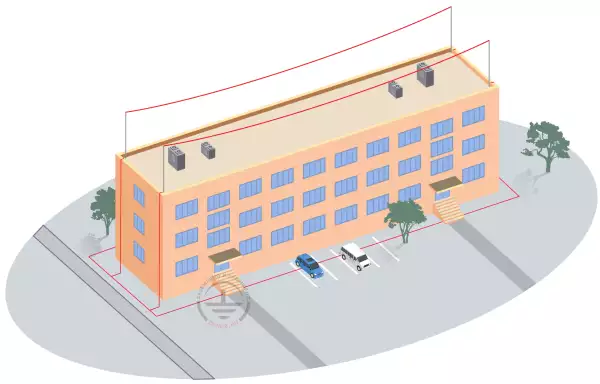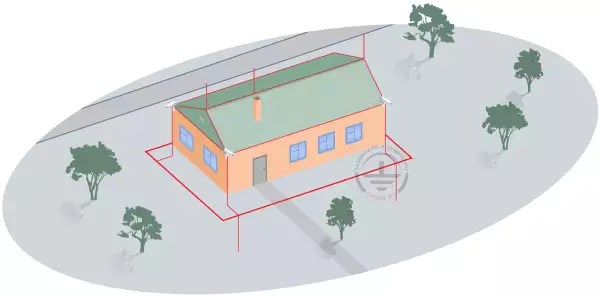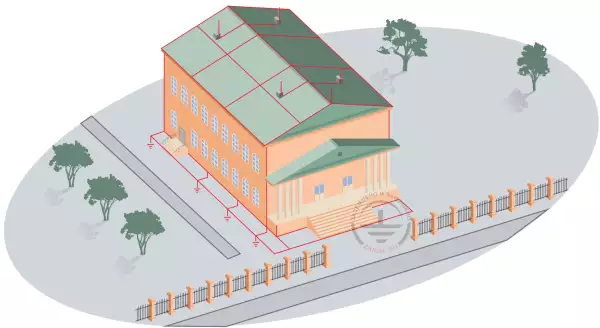

Content
- 1. Main principles of choosing, placing and assembly of surge arresters
- 1.1. Norms referring to surge arresting devices
- 1.2. Stage structure of surge voltage protection systems
- 1.3. Classical composition of a protective cascade
- 1.4. Classification of surge arresters
- 1.5. Placement of surge arresters - general comments
- 1.6. Short circuit resistance of arresters
- 1.7. Schemes of surge arresters connection
- 3. Surge arresters of class II
- 4. Surge arresters of class III
- 5. Reference book on basic parameters and types of surge arresters on the example of the LEUTRON element base
- 6. Typical solutions of multi stage surge protection systems
- 6.1. Big construction object
- 6.2. Typical construction site, equipped with external lightning protection system.
- 6.3. Single-family residential house, equipped with external lightning protection system.
- 6.4. Single-family residential house without external lightning protection system.
- 6.5. Manufacturing plant
- 6.6. High-rise office center
1. Main principles of choosing, placing and assembly of surge arresters
1.1. Norms referring to surge arresting devices
In accordance with the standard IEC 61643-1: "Surge protection devices, connected to low-voltage systems of electric energy distribution. Part 1: Technical requirements an test methods", the devices for surge suppression are intended to protect equipment and devices from the impact of induced internal and atmospheric overvoltages and also from the direct impact of lightning current. These devices are intended for the equipment powered by the alternating current with the voltage of 50/60Hz up to 1000V or for equipment, powered by the DC up to 1500V. The mentioned norms determine the character of action, test methods and also technical paremeters for these devices.
General principles of pickup and coordination of surge arresters of different classes is contained in the document IEC/TS 61312-3:2004 " Protection from electromagnetic lightning pulse. Part 3. Requirements to surge protection devices (SPD)".
The standard determines requirements regarding surge arresters, principles of their assembly in accordations with the Zone Lightning protection Concept (ZLC), and also mutual coordination between separate arresters or between the arrester and the protected device.
In accordance with the obligatory principles, the systems of correctly chosen arresters, placed in corresponding places should interact with other electric devices and create conditions, that guarantee long-term trouble-proof power supply.
Primary protection scheme ( 1 stage) is mainly intended to limit impacts of external origin. Secondary scheme ( 1 stage) limits temporary undefined states, appearing after actions of the primary protection scheme and also impacts, generated inside the building.
1.2. Stage structure of surge voltage protection systems
In the majority of construction sites, equipped by lightning protection devices, it is required to use the stage structure of surge voltage systems in electric supply devices. Each protection stage of this system is formed of properly chosen and placed schemes of surge arresters. Classical, universally used till the present day three-stage protection scheme of equipment electric supple 230/400V performed in the system TN-C-S is shown in fig. 1.1.

Fig. 1.1. Placement of surge arresters in the overall scheme of construction site electric supply on the example of protection system of TN-C-S network overvoltage
Защита согласно EIC ….- Protection according to EIC
Кабельное соединение- cable connection
Главный распределительный щит- main switchboard
Этажный щит- switchboard on the floor
Конечные потребители- ultimate consumers
Трансформатор- booster
Фазные предохранители- phase safety devices
Система молниезащиты- lightning protection system
Ограничители 1 класса- I class arresters
Система сети – network system
Номинальное напряжение- rated voltage
Требуемая ударная стойкость кабелей и устройств – required shock resistance of cables and devices
При фазовом напряжении – at the phase voltage of…..
Категория устройства согласно IEC – device category according to EIC
Главная заземляющая шина – main grounding bus
Локальная заземляющая шина – local grounding bus
Сигнализация повреждения- fault signaling
Фазные предохранители –phase safety devices (fuses)
Дополнительные предохранители- additional safety devices (fuses)
Related Articles:
 ZANDZ SMS-NEWSLETTER
ZANDZ SMS-NEWSLETTER




